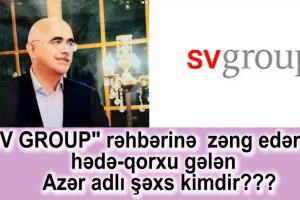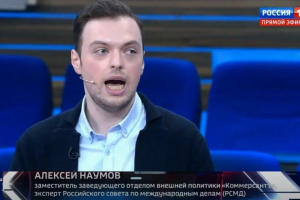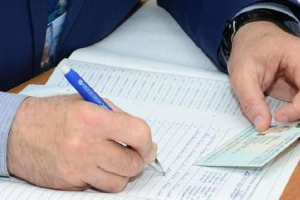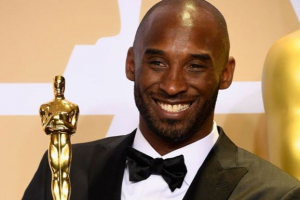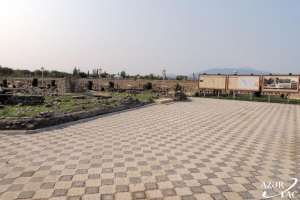


Two Israeli police officers were killed and a third injured after three Arab-Israeli gunmen opened fire at Jerusalem's ultra-sensitive Temple Mount holy site in a brazen attack that is likely to exacerbate Israeli-Palestinian tensions.
Shots rang out at the Lion's Gate entrance to Jerusalem's Old City early Friday morning before three armed assailants fled to the Al-Aqsa mosque at the flashpoint Temple Mount compound, where they were shot dead by security forces.
Two officers who were evacuated to Jerusalem's Hadassah Mount Scopus Hospital in critical condition with gunshot wounds later succumbed to their injuries, police confirmed.
They were identified as Sergeant Major General Haiel Stawi, 30, and Lieutenant-Colonel Kaamil Snaan, 22, both from predominantly Druze communities in northern Israel.
A third victim remains in hospital in light to moderate condition after suffering a shrapnel injury.
Security forces locked down the area and the Al-Aqsa mosque was closed to Friday prayers for the first time in decades, with the Israel Defense Forces (IDF) saying it was preparing for violent confrontations in the aftermath of the attack.
 Israeli security forces stand guard at one of the entrances to the Al Aqsa mosque compound in the Jerusalem's Old City on July 14, 2017
Israeli security forces stand guard at one of the entrances to the Al Aqsa mosque compound in the Jerusalem's Old City on July 14, 2017
Videos circulating on social media showed a hail of gunfire ring out in what seemed to be an exchange of bullets between Israeli security forces and the assailants.
Israel's Shin Bet intelligence agency revealed the three assailants to be Arab-Israeli citizens of the village of Umm al-Fahm, none of whom were previously known to security agencies.
They were identified as Mohammad Ahmad Mohammad Jabarin, 29; Mohamman Hamed Abdal-Latif Jabarin, 19; and Mohammad Ahmad Fadel Jabarin, 19.
Police recovered two Carl Gustav rifles, a pistol, and a knife from the bodies of the attackers.
A Facebook account attributed to one of the assailants showed a selfie of two men smiling in front of the Al-Aqsa mosque on the Temple Mount dated just before the shooting began. Other Facebook users left anti-Semitic comments on the photo and praised the attackers.

The attack prompted an immediate outpouring of calls for Prime Minister Benjamin Netanyahu to change the long-standing policy at the holy site, which allows Muslim prayer there but forbids Jewish prayer and religious rituals, which he rejected outright saying: "The status quo will be maintained."
Palestinian Authority President Mahmoud Abbas spoke with Netanyahu by phone after the attack, condemning it and expressing "his rejection of any act of violence from any side, especially in places of worship."
Netanyahu "called for calm on all sides," and assured Abbas that he has no intention of changing the status quo at the site.
Later on Friday, Netanyahu's office said that it would maintain tight security around the Temple Mount and only gradually re-open the site to worshippers on Sunday.
The Prime Minsiter also instructed police to dismantle mourning tents that were erected by the families of the perpetrators in Umm al-Fahm.
Jerusalem's most senior Muslim cleric, Grand Mufti Muhammed Hussein, was taken in for questioning by police along with his controversial predecessor Ekrimi Sabri, the Ynet news website reported.
One of the mufti's bodyguards, Khaled Hamo, told AFP that police "entered the crowd and took the mufti."
Senior Western diplomats, including US Ambassador to Israel David Friedman and UN Special Coordinator for the Middle East Peace Process Nickolay Mladenov, also condemned the attack
But Palestinian terror groups praised the attack, with Islamic Jihad describing it as "heroic" and the Gaza-based Hamas calling it "a natural response to Israeli terrorism and the desecration of the Al-Aqsa Mosque."
Hamas said that the attack proves "that the intifada continues and our people are united behind the resistance."
The Temple Mount, known to Muslims as Haram al Sharif, is the holiest site in Judaism and the third holiest in Islam.
 Al-Aqsa, the third holiest site in Islam, is also venerated by Jews as the Temple Mount and is considered the most sacred place in Judaism.
Al-Aqsa, the third holiest site in Islam, is also venerated by Jews as the Temple Mount and is considered the most sacred place in Judaism.
The hilltop compound is central to the Israeli-Palestinian conflict, with Palestinians fearing Israel may one day seek to assert further control over it and change rules which currently state that Muslims can pray there, while Jews can visit but are not allowed to pray.
Israel has vowed repeatedly to maintain this status quo, but Friday's attack sparked immediate calls for Netanyahu to revisit this policy.
"The cynical use of the Temple Mount as a kind of immunity for incitement and terrorism will have to stop," said Israel's minister of Jerusalem affairs Zeev Elkin.
Likud lawmaker and chairman of the lobby to strengthen the Jewish connection to Temple Mount, Yehuda Glick, said the attack was meant to undermine Jewish ties to the holy site and condemned the act as a desecration of its sanctity.
"The terrorism carried out with the backing of the Palestinian Authority and the Islamic Movement in order to undermine the Jewish connection to the Temple Mount cannot be tolerated," he stated. "The extremist Muslims who bloodfully desecrate the sanctity of the Temple Mount, the holiest place for the Jewish people, have no right to be there," Glick said.
 Israeli security forces and paramedics work at the scene of an attack at Jerusalem's Lion's Gate, July 14, 2017
Israeli security forces and paramedics work at the scene of an attack at Jerusalem's Lion's Gate, July 14, 2017
Right-wing Jewish Home Knesset member Moti Yogev called for the compound to be closed to Muslims for an extended period of time.
"For us the Temple Mount is a house of prayer for all nations," he said. "With them, a base of terror and hatred. The Temple Mount should be closed to Muslims for an extended period of time and the security and political control over it should be tightened."
Culture Minister Miri Regev stated that, "The time has come for the Temple Mount to be an open and free place for everyone with no restrictions...as in any other place in Jerusalem."
"The Waqf should administer only the mosque, not the entire mountain, which is under responsibility and sovereignty of the Israeli government. Only then will peace and security return to the Mount and the Old City," Regev stated.
Waqf officials said its guards at the site had been detained by Israeli police following the attack, as questions arose as to how the assailants managed to bring weapons into the site.
 Israeli security forces frisk a Palestinian youth in Jerusalem's Old City on July 14, 2017, following an alleged attack
Israeli security forces frisk a Palestinian youth in Jerusalem's Old City on July 14, 2017, following an alleged attack
Israel's Security Minister Gilad Erdan arrived at the scene of the attack later Friday morning, calling it "an extremely serious event which crossed all red lines."
"I call on leaders on every side to work to calm the situation and maintain the quiet in Jerusalem," he added.
Erdan later defended the closure of the site as necessary for public safety.
Jerusalem's Old City has become a frequent backdrop for violence since a spate of attacks began in October 2015, with security measures recently been increased around Damascus Gate where last month a 23-year-old Israeli border policewoman was fatally stabbed.
A wave of unrest that broke out in October 2015 has claimed the lives of at least 277 Palestinians, 42 Israelis, two Americans, two Jordanians, an Eritrean, a Sudanese and a Briton, according to an AFPtoll.
Israeli authorities say most of the Palestinians killed were carrying out knife, gun or car-ramming attacks.
Others were shot dead in protests and clashes, while some were killed in Israeli air strikes on the Gaza Strip.
